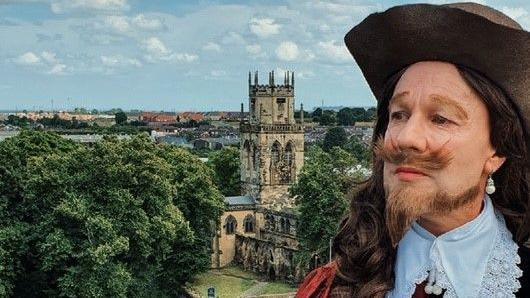The Kent mayor instrumental in beheading a king
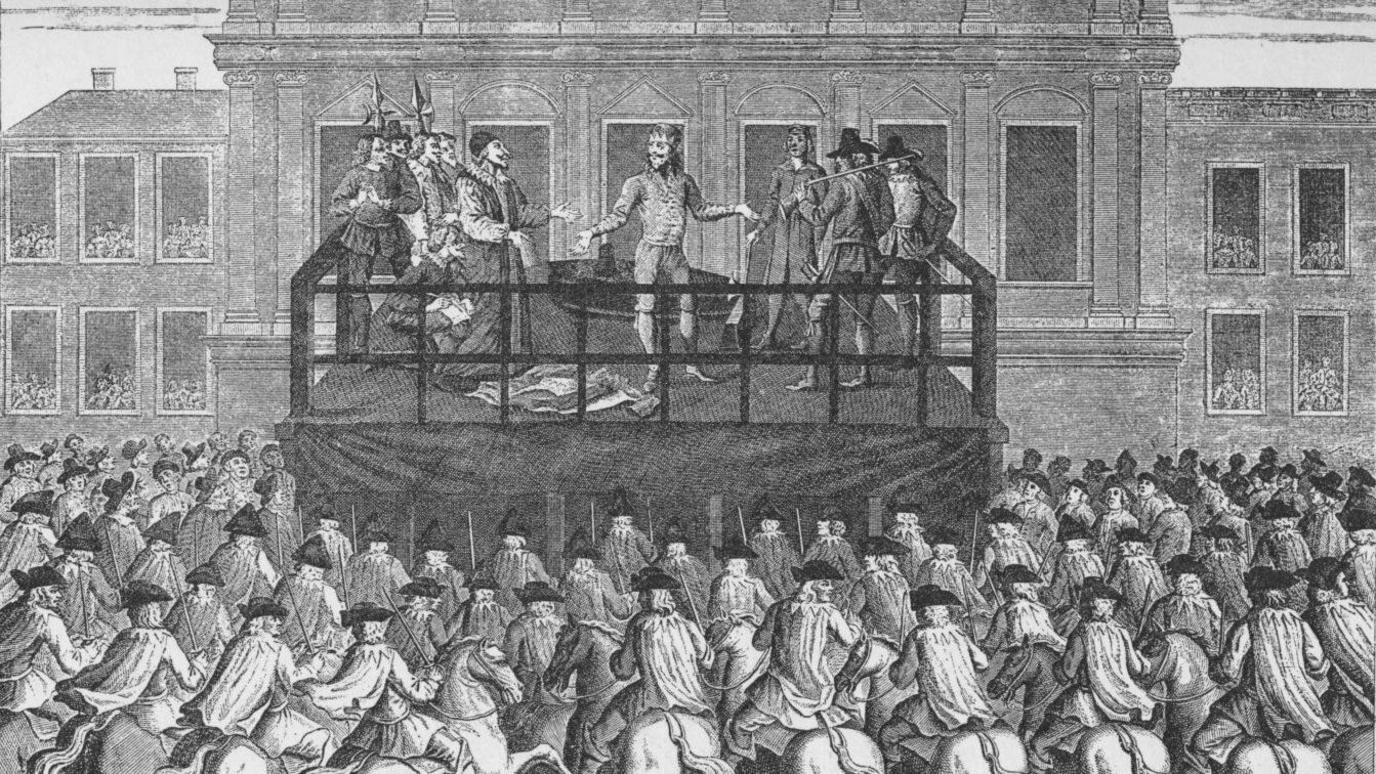
King Charles I was executed on 30 January 1649
- Published
A little-known mayor from Kent was one of the key figures responsible for the death of an English monarch.
Andrew Broughton, who was the mayor of Maidstone, went on to be Oliver Cromwell's right-hand man and one of the main instigators in the beheading of King Charles I in 1649.
As clerk to the House of Commons he was given the crucial role of getting prominent figures to sign the king's death warrant.
Shane Waterman, historian and Maidstone tour guide, said he was a "zealous puritan" who "sat by Cromwell's side".
Andrew Broughton lived in Earl Street in Maidstone and was the town's mayor for 12 years.
His former home is now a Thai restaurant.
He left Maidstone in the 1640s to become Oliver Cromwell's right-hand man.
Mr Waterman said: "Broughton was his mover and shaker in the background and when the time came, very much his enforcer."
On January 4, 1642, Charles I stormed Parliament with armed soldiers in an attempt to arrest five Members of Parliament for high treason, which proved a turning point.
"Very soon afterwards he was charged with treason, arrested, tried and found guilty," said Mr Waterman.
"At the time there was only one punishment for treason and that was death."
Mr Waterman said this was when Broughton's role became crucial.
"The decision had been made and he was going to see it through, because that's what his beliefs told him.
"He went round and strong-armed the 57 other people who signed that death warrant."
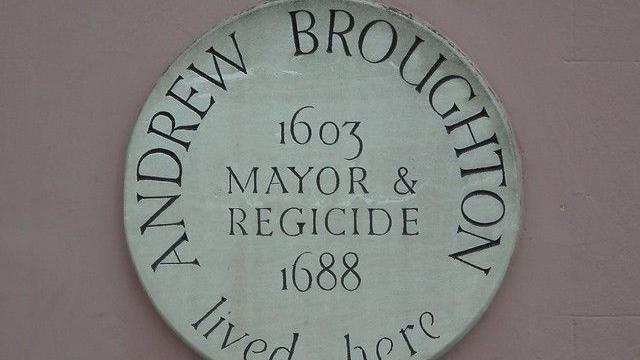
A plaque to Andrew Broughton is outside his former home in Maidstone
King Charles I was beheaded on 30 January 1649 at the Palace of Whitehall in London, the first and only time a reigning English monarch was tried and executed by his own people.
After the restoration of the crown in 1660, Andrew Broughton was left in a difficult situation.
Mr Waterman said: "When Charles II came back his target was the people who had signed that death warrant.
"There were a few people he refused to give a pardon to and one of them was Andrew Broughton."
He left his family and went into hiding in Vevay in Switzerland, where he remained until his death in 1688.
Broughton's house in Maidstone is marked by a plaque with the word "regicide" - killer of a king.
Mr Waterman said: "It serves as a reminder of what the mayor of Maidstone was involved in.
"How he's not better know in English history amazes me."
The man who killed the king
Follow BBC Kent on Facebook, external, on X, external, and on Instagram, external. Send your story ideas to southeasttoday@bbc.co.uk, external or WhatsApp us on 08081 002250.
Secret Kent
Explore more fascinating stories from Kent
Listen and subscribe for the latest episode of SecretKent
Related topics
- Published17 June 2024
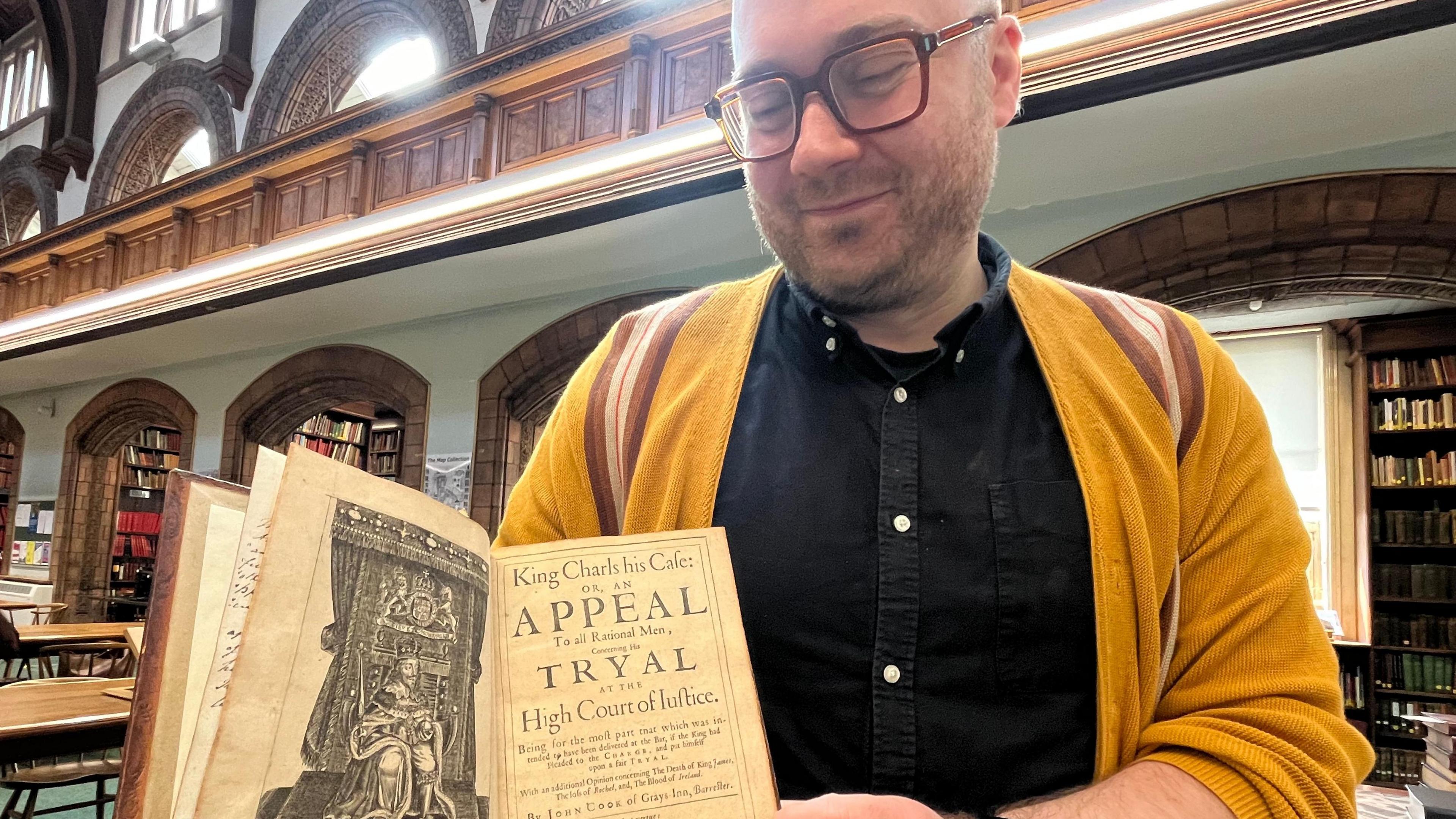
- Published30 January 2020
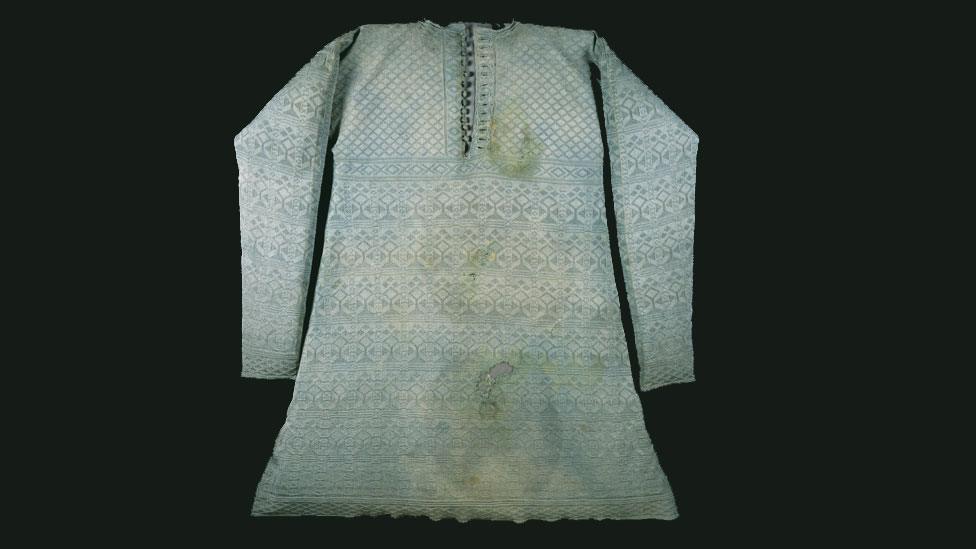
- Published21 May 2024
